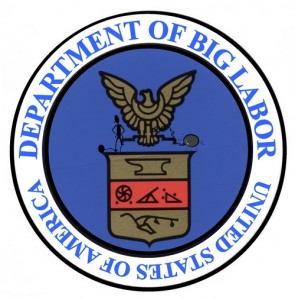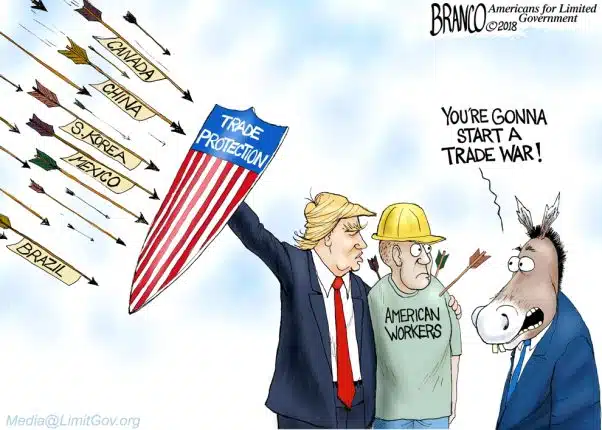NRD Editor’s Note: This column was originally featured at the Washington Examiner.

If finalized, these rules will significantly reduce the availability of legal counsel for employers and will limit the ability of employers to exercise their First Amendment rights to free speech.
Here is how these rules working together will negatively affect businesses.
One afternoon in 2012 a small-business owner receives notice from the NLRB that a local union has filed a petition for a unionization election. The owner had no idea that union activity was occurring and is shocked to learn that his whole world could dramatically change in just two weeks.
The owner calls his long-time lawyer seeking legal advice on what he should do to keep the union out of his family business. The owner thinks he needs to give a speech to his employees and asks for help. The lawyer says, “Sorry, I’d love to help you edit a speech, but if I do so then, under the Labor Department’s new ‘persuader’ regulation, I’ll have to publicly disclose all of my labor relations clients and what they paid me last year. I can’t do that because I’d lose them as clients.”
So, the business owner goes without legal advice. Since he hasn’t been in this situation before, he doesn’t know all the ways to get into trouble with the NLRB. He inadvertently commits a couple “unfair labor practices” by doing something as simple as disciplining an unruly employee.
Assuming that the business owner could find help, by the time the outside consultant is retained and has filed the mandatory paperwork, the election is over thanks to the NLRB’s new “snap elections” regulation.
Since the election is now over, the union if it won will push the employer to drop any of their objections to things like whether the voters were actually eligible to vote. This will be done under the guise of “not re-litigating the past” and moving toward “labor peace.” All the while the NLRB will nod with approval as the union becomes the business owner’s partner, raking in dues to keep its coffers flush.
Welcome to labor relations the Chicago way, courtesy of President Obama’s Labor Department and the NLRB.
The Labor Department’s proposed “persuader” regulation would have a tremendously chilling effect on businesses’ ability to get legal advice. A cynic would say that this is intentional to make sure that businesses are not able to effectively communicate with their employees on issues such as whether the union is a good idea.
The NLRB’s proposed regulation would among other things make it impossible for employers to have time to communicate with their employees. Instead, it’s a rush to get the vote over before anyone knows what they are voting on — much like what the Democrats in Congress did when they passed Obamacare.
These two proposed regulations taken together are a huge gift to the labor movement. Unions today can’t sell their product and as such are seeking regulatory changes in order to continue extracting dues.
Denying employers or any individual or organization the right to effective counsel and effective speech during any phase of their business operations is unconscionable. But, that is exactly the practical effect of the Labor Department’s proposed regulation.
The Obama administration should look for ways to get the government out of the way, allowing the private sector to create jobs. Layers of new, unnecessary, and harmful labor regulations make it harder for businesses to succeed and should therefore be scrapped.
Don Todd served for eight years as deputy assistant secretary of the Department of Labor under President George W. Bush, where he oversaw the Office of Labor-Management Standards. Todd is the Director of Research at Americans for Limited Government.






